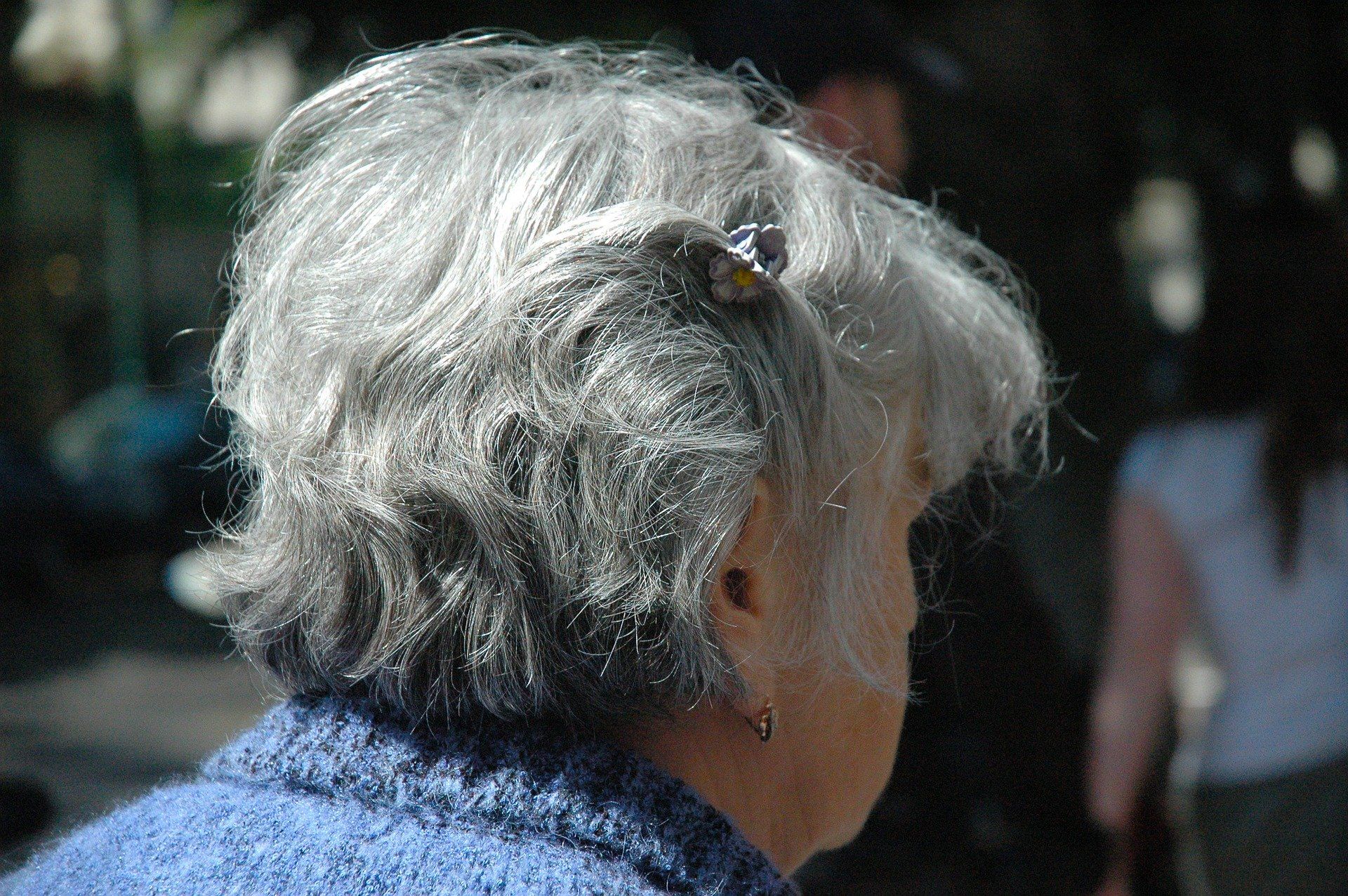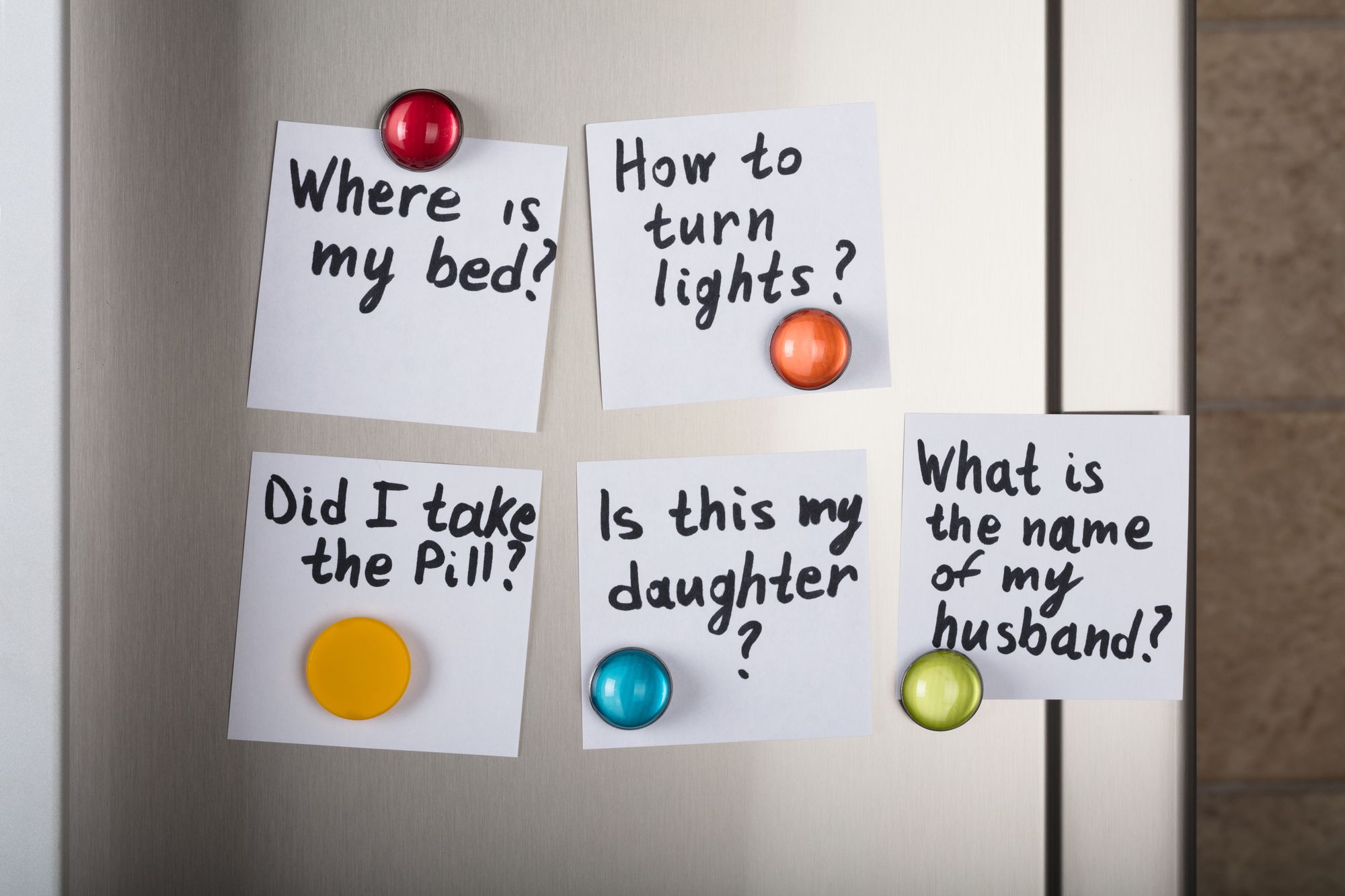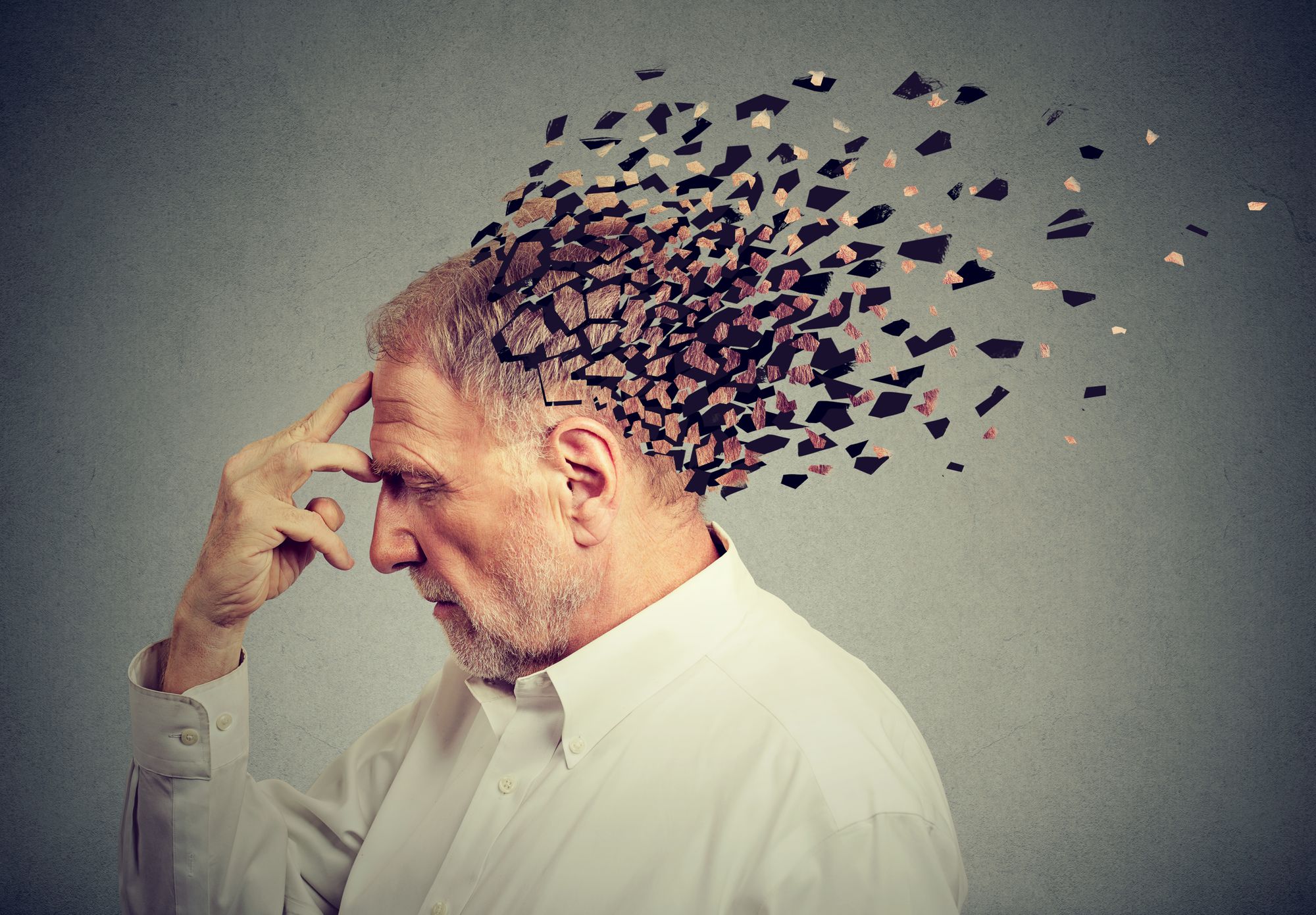
La tua pazienza può essere veramente messa alla prova se la persona con demenza inizia ad aggrapparsi a te e seguirti. Molto probabilmente, il tuo caro sta cercando di dare un senso al mondo che lo circonda e tu sei spesso l'unica certezza stabile nella sua vita. Non

Una persona con demenza può manifestare comportamenti irrequieti come agitazione, dondolio, spostare e riordinare oggetti. Questo tipo di irrequietezza può essere causata da dolore, disagio, depressione, stitichezza, fame, sete, bisogno di andare in bagno, ansia, noia o da qualche elemento presente nell'ambiente. Non è sempre facile determinare perché

Nel video che segue sarete guidati in una attività di meditazione. Soprattutto per le persone che hanno poca o nessuna esperienza con la meditazione, questa meditazione guidata può essere un buon aiuto. Una meditazione di dieci o quindici minuti, come spiegato di seguito, può aiutarvi a superare lo stress e

Nei seguenti video sarete guidati attraverso brevi sequenze di rilassamento. Il training autogeno e il rilassamento muscolare progressivo sono molto indicati per ritrovare se stessi prima di andare a letto o nella vita quotidiana stressante e per dimenticare l'ambiente circostante.

Prendersi cura di sé è uno degli aspetti più importanti del caregiving. Molti caregiver soffrono di sensi di colpa, con la sensazione di non fare mai abbastanza per la persona affetta da demenza. Si fanno in quattro per aiutarla, finendo per crollare. Prendersi cura di sé è l'esatto

Nel video che segue sarete guidati attraverso una sequenza di yoga. Le brevi pratiche di yoga possono essere un metodo utile per rilassarsi e muovere il corpo dopo una giornata impegnativa.

Riunirsi davanti alla TV può essere importante per il contatto sociale e l'affiatamento durante il decorso della malattia. Per le persone affette da demenza, guardare la TV da soli sembra essere meno importante come attività di svago, ma più gli altri sono vicini, più questo influisce sulla gioia

Gli animali possono essere ottimi argomenti di conversazione, possono stimolare l'attività e fornire conforto. Accarezzare un animale peloso può essere rilassante e l'interazione con gli animali può stimolare il gioco e l'attività. Dopo una diagnosi di demenza non è un buon momento per introdurre

Fate una ricerca sulle strutture locali. Molti musei offrono mostre, laboratori e guide a misura di demenza. Se la struttura non ha pubblicato nulla sull'argomento, può essere utile contattarla. Possono aiutarvi ad organizzare le visite in modo che siano più adatte alle persone affette da demenza. Condividere esperienze

Camminare è una buona forma di esercizio fisico, di piacere e di indipendenza che deve essere sostenuta il più a lungo possibile. È gratuito, non richiede attrezzature speciali e la distanza e il tempo possono essere variati per adattarsi a tutti. Molte persone affette da demenza sono in grado di

Negli ultimi stadi della demenza, quando non è più possibile svolgere le attività di un tempo, cercate di comunicare attraverso i sensi. Alcuni dei nostri ricordi più forti sono innescati dagli odori. Tuttavia, la capacità di sentire gli odori diminuisce con l'avanzare dell'età. Cercate erbe, spezie

Apparecchiare la tavola può essere un compito impegnativo sia dal punto di vista fisico che mentale quando una persona è affetta da demenza. Tuttavia, compiti con la giusta dose di impegno sono utili per mantenere le funzioni mentali e fisiche. Chiedete alla persona di aiutarvi e dite chiaramente cosa vi

Gli animali possono essere ottimi argomenti di conversazione, richiamare attività e fornire confort. Accarezzare un animale domestico peloso può essere calmante e interagire con gli animali domestici può incoraggiare il gioco e l'attività. Dopo una diagnosi di demenza non è un buon momento per introdurre un nuovo animale

I giochi popolari facili, come i giochi sul prato, possono essere una valida distrazione dallo stress della demenza. Puoi provare le bocce, il lancio dei cerchietti, il croquet, etc. Se la stagione o lo stato funzionale della persona ti richiedono di stare all'interno, cerca le versione adatte in

Diventa creativo! Disegno, collage, pittura, fotografia, lavorazione del legno, creazione di gioielli; solo la tua immaginazione pone dei limiti a come puoi creare l'arte. Può essere un bel modo per stimolare la creatività e rendere migliore il tempo trascorso insieme. A seconda delle esigenze della persona di cui

Rovistare può essere fonte di distrazione e difficile da gestire per te che sei un caregiver. Il tentativo di fermare il rovistare può causare agitazione, paranoia e può rendere la persona ancora più propensa a nel farlo. Prova a trasformarlo in un'attività! Riempire scatole o cassetti con cose

Osservare e parlare di persone e luoghi può essere un modo per svolgere un lavoro di reminiscenza. Parla di ciò che vedi nelle immagini ed evita di fare domande trasformandolo in un quiz. Ricorda che parlare del passato può scatenare forti emozioni. Assicurati di consentire alla persona di cui ti

Nelle prime fasi della demenza, la parola scritta può essere piacevole. L'ascolto di audio libri invece può aiutare a colmare il divario per coloro che hanno difficoltà a leggere. Prova a trovare libri o audio senza troppi intrecci. I programmi radiofonici possono essere piacevoli, poichè sono fatti per

Puoi creare una lista personalizzata di brani e posizionarla su un dispositivo elettronico (iPod, smartphone, ecc.). Creare la playlist insieme potrebbe essere un'attività divertente. Successivamente, puoi ricercare la playlist che hai creato e ascoltarla insieme.

Per alcuni è importante mantenere le tradizioni religiose. Per molte persone la religione è stata una parte importante della loro vita sin da quando erano bambini. La persona di cui ti prendi cura potrebbe ancora ricordare preghiere o inni. La religione e la spiritualità possono essere praticate quasi ovunque. Pregare

Può essere piacevole riprendere o rimanere in contatto con coloro che sono vicini alla persona di cui ti prendi cura. Molte persone tendono ad isolarsi quando affrontano la demenza. Può essere saggio parlare in anticipo con coloro che vengono in visita e limitarne sia il numero che la durata delle

Soprattutto verso le fasi successive della demenza, una parte importante del miglioramento della qualità della vita per la persona con demenza è creare momenti di gioia. Gli elementi della natura hanno dimostrato di avere un impatto positivo sul benessere delle persone affette da demenza. Sedersi fuori e godersi un buon

La piscina rappresenta il modo migliore per rimanere attivi e socializzare. Oltre a ciò l'acqua trasmette tranquillità. Provate a recarvi in un piscina locale o in spiaggia. Chiedi se hanno dei corsi che la persona di cui ti occupi può frequentare. Se non li hanno o se vuoi

5 o 10 minuti di massaggio alle mani può creare un momento di calma accogliente per te e la persona con demenza. Può rafforzare la relazione, oltre a diminuire velocemente l'agitazione. Il contatto fisico con l'altro spesso viene a mancare con l'aumentare della demenza

Gli adulti più anziani, specialmente quelli con demenza, potrebbero avere difficoltà con le attività quotidiane, ma hanno ancora necessità di sentirsi realizzati in qualcosa e di impegnarsi in attività basiche senza commettere errori. Prova a chiedere alla persona di piegare gli asciugamani, i vestiti o altri tessuti. L'attività

Ci sono molte attività che riguardano le piante che le persone con demenza potrebbero trovare arricchenti. A seconda della stagione, puoi trovare diverse attività appropriate. In primavera puoi preparare aiuole e bordure per piantare semi e piante, tagliare l'erba, annaffiare, rastrellare le foglie, etc. Se c'è

Cercate immagini di eventi passati, celebrità, campionati sportivi e persone che sono apparsi sui media. Cercate di non trasformare la conversazione in un quiz. Invece di dire: "Ti ricordi da dove viene questa immagine?", un altro approccio potrebbe essere: "Mi ricordo quando Sara Simeoni ha vinto la

Sia l'attività fisica che l'ascolto della musica hanno effetti positivi sulle persone affette da demenza. Perché non provare a combinare le due cose? Il ballo non è solo l'arte che i professionisti praticano in una sala da ballo. In termini tecnici, ballare significa muoversi

Ci sono molte opportunità nella vita cittadina per trovare attività e allo stesso tempo incontrare altre persone. Può trattarsi di un luogo di culto, una galleria d'arte, un museo, una sala da concerto o un teatro, un gruppo comunitario, un centro ricreativo o un pub. In alcuni luoghi

L'aspetto esteriore è parte integrante di ogni persona e ognuno ha una propria routine di toelettatura. Nell'ambito della normale routine, è utile incoraggiare la persona con demenza a fare il più possibile da sola, guidandola e assistendola. A volte però, imitare un parrucchiere può essere un

Cucinare può essere un buon modo per preservare la funzionalità mentale e quella fisica. Seguire una ricetta fino alla fine potrebbe essere troppo impegnativo. Tuttavia, se si suddivide la ricetta in operazioni più piccole, la persona affetta da demenza potrebbe essere maggiormente in grado di partecipare. La preparazione del pane

Per una persona affetta da demenza, una chiacchierata su chi è ed era, piuttosto che sulla sua malattia, può essere un'attività positiva. Si può fare un lavoro di memoria utilizzando foto, musica, oggetti o altri stimoli per creare una conversazione che ricordi i dettagli di una vita. Creare

La demenza presenta sintomi cognitivi, comportamentali e fisici. Per mantenere la funzionalità fisica e diminuire la noia e la frustrazione come cause di comportamenti problematici, è importante che le persone con demenza si mantengano attive. L'attività fisica può fornire una gradevole distrazione dallo stress della malattia e aiutare

A volte, una persona affetta da demenza può perdere interesse per le attività ricreative e di svago che prima amava fare. La persona può trovare l'attività difficile e faticosa, il che può causare sentimenti di frustrazione o rabbia. I disturbi della memoria possono ridurre la capacità della persona

Il wandering (camminare senza una meta) è comune tra le persone con demenza. Il wandering può sembrare senza scopo, ma in realtà la persona con demenza può aver dimenticato dove stava andando o cosa aveva pianificato di fare. Può essere stressante vigilare su qualcuno che cammina senza meta e potrebbe

Esistono lo stigma e la discriminazione associate alla demenza, causati in parte dalla mancanza di consapevolezza da parte della popolazione e dalla comprensione della malattia. Lo stigma e gli stereotipi sono ostacoli significativi per il benessere e la qualità della vita delle persone affette da demenza e di chi si

Per una persona che soffre di demenza è comune sperimentare problemi legati al sonno. Ad esempio, la persona con demenza potrebbe svegliarsi più volte durante la notte o cambiare abitudini rispetto al risveglio o all’addormentamento. Non è raro che le persone con demenza perdano la capacità di distinguere tra

Una persona con demenza può fare o dire qualcosa più e più volte, ad esempio può ripetere una parola, una domanda, un’attività o distruggere qualcosa che è appena stato finito. Cerca di ricordare che la persona con demenza non sta intenzionalmente cercando di infastidirti, ma è molto probabile che

Chi si occupa di una persona con demenza generalmente individua tre momenti di cambiamenti durante il decorso della malattia: il momento della diagnosi, il momento in cui si rende necessario l’intervento di cure formali e il momento in cui la persona con demenza non può più vivere nella propria

Chi si prende cura di una persona affetta da demenza individua generalmente tre momenti di passaggio nella progressione della malattia: il momento della diagnosi, quando ci si rende conto della necessità di cure formali e quando la persona non può più vivere nella propria casa. Tuttavia, molte persone con demenza

La tua pazienza può essere veramente messa alla prova se la persona con demenza inizia ad aggrapparsi a te e seguirti. Molto probabilmente, il tuo caro sta cercando di dare un senso al mondo che lo circonda e tu sei spesso l'unica certezza stabile nella sua vita. Non

Quando qualcuno muore, è normale provare sentimenti di dolore. È normale sentirsi addolorati all’idea di non vedere più una persona, che i conflitti non siano stati risolti e i sogni e le aspettative collegate al futuro siano persi. Quando una persona soffre di demenza, si verificano sentimenti simili, ma

Nessuno può prendersi cura di qualcuno con demenza da solo nel tempo, senza aiuto e sostegno. I gruppi di sostegno possono essere utili per trovare incoraggiamento, informazioni e ispirazione. In teoria, potresti già sapere di non essere solo, ma incontrare persone reali in situazioni simili alla tua può essere utile.

In questo articolo, presenteremo una panoramica di diversi strumenti tecnologici che possono essere di aiuto nel caso in cui vi sia una persona con demenza. I supporti tecnologici non sono necessari per svolgere l'attività di cura, ma possono essere un aiuto. Dispositivi di localizzazione (GPS) Se al tuo

I comportamenti sospettosi e/o i deliri possono verificarsi in qualsiasi fase della malattia, ma spesso si verificano nella fase intermedia o tardiva della demenza. I deliri sono ferme convinzioni rispetto a cose che non sono reali. Ciò può portare la persona con demenza a sospettare di coloro che la

Molte persone affette da demenza sperimentano cambiamenti dell'umore durante il decorso della malattia, e talvolta viene persa la capacità di controllare le proprie emozioni. Il tuo caro potrebbe perdere interesse per le attività che erano solite piacergli, allontanarsi dalle persone o diventare depresso. La depressione è una condizione

La demenza modifica il vivere quotidiano e può rendere sempre più complicato svolgere anche compiti usuali. Improvvisamente semplici compiti come vestirsi, fare un bagno o preparare una tazza di caffè diventano gradualmente problematici. Ad esempio, non è più ovvio cosa indossare per primo quando ci si veste, come usare una

La demenza causa cambiamenti nel corpo e nella mente che possono influire sulla sicurezza domestica. Ci sono molti rischi potenziali in casa, e alcune modifiche potrebbero essere importanti per prevenire gli incidenti e ridurre la confusione. Inoltre, le persone affette da demenza possono beneficiare di un ambiente riconoscibile e organizzato.

L'apatia è descritta come una mancanza di interesse o una persistente perdita di motivazione nel fare le cose. Può essere difficile trovare attività appropriate in cui impegnarsi, quando la persona di cui ti stai prendendo cura soffre di apatia. Tuttavia, impegnarsi in alcune attività sarà utile per mantenere

Vivere nelle proprie quattro mura il più a lungo possibile - questo è il desiderio della maggior parte delle persone anziane. C'è una crescente offerta di aiuti che permettono alle persone di rimanere nelle loro case anche in età avanzata. Le nuove tecnologie stanno diventando sempre più importanti.

È comune per le persone affette da demenza rifiutarsi di accettare le cure. Ciò può accadere per diversi motivi, a seconda anche dello stadio della malattia, facendoti scoraggiato perché le tue intenzioni sono buone. Una delle cause riguarda l'accettazione della malattia. La persona con demenza potrebbe negare di

La perdita di memoria è uno dei sintomi più comuni nella demenza. Di solito, la memoria peggiora gradualmente nel tempo. Potresti osservare il tuo caro diventare sempre più confuso o disorientato. La persona con demenza potrebbe dimenticare fatti fondamentali della sua vita: ad es., potrebbe non riconoscere più le altre

I pasti possono diventare difficili con il progredire della demenza. Non è raro che la persona mangi di più perché ha dimenticato di aver mangiato prima, o smetta di mangiare perché non ricorda affatto di dover mangiare. Può succedere che una persona con demenza mangi con le mani anziché con

Non è sempre possibile determinare perché una persona con demenza sceglie di spogliarsi in modo inappropriato. È possibile, tuttavia, prendere nota di quando la persona inizia a giocherellare con i propri vestiti o cerca di spogliarsi. Forse noterai una serie di azioni ripetute. Cerca di capire se il tuo caro

Le persone che soffrono di demenza possono cercare cose che credono di aver perso e arrabbiarsi per questo. A volte hanno dimenticato dove hanno messo l'oggetto e talvolta l'oggetto non esiste nemmeno, ma è un ricordo del passato. Gli oggetti nascosti o persi possono essere fonte

Un'allucinazione può includere qualcosa che senti, annusi o esperisci, ma che in relatà non esiste. Le allucinazioni sono solitamente percepite come spiacevoli e possono generare paura e persino comportamenti aggressivi. Non è facile sapere come rispondere alle allucinazioni. Cerca di capire se l'allucinazione è un problema

Non è insolito che una persona con demenza faccia delle accuse contro le persone intorno a sé ad un certo punto della malattia. Le accuse più comuni riguardano il sentirsi derubati o attaccati. Può essere doloroso e stressante essere accusato senza motivo da parte della persona con demenza. Le accuse

Durante la malattia, una persona con demenza può perdere la capacità di riconoscere cose, luoghi o persone. Questo può essere dovuto alla perdita di memoria, ad uno stato di confusione alla riduzione della vista, ma potrebbe anche essere dovuto all’"agnosia". L’agnosia si ha quando il cervello

Tutti hanno bisogno di compagnia e intimità fisica, e le persone con demenza possono esprimere advances sessuali verbali o/e fisiche ad un certo punto della malattia. La ragione che sta dietro a questo comportamento non è sempre sessuale, ma potrebbe derivare dallo stato di confusione. Alcuni comportamenti sessuali potrebbero

Con il progredire della demenza, la parte del cervello che controlla le inibizioni può danneggiarsi. Questo può portare a comportamenti inappropriati, strani o imbarazzanti per te. Occasionalmente, questo tipo di comportamenti è un tentativo di comunicare qualcosa o un segnale che la persona con demenza è confusa o disorientata. Di

Spesso, le persone con demenza si accorgono che qualcosa non va. Se esprimono la loro preoccupazione, coloro che li circondano fanno risalire i sintomi a stress, troppo lavoro o ad un fenomeno temporaneo. Quindi cercano di nascondere le difficoltà che si verificano aiutandosi con vari trucchi, come l'uso

Guidare è un compito complesso che richiede concentrazione, attenzione e orientamento e, ad un certo punto, la guida sarà un problema per la persona con demenza. Per il tuo caro potrebbe essere sconvolgente non poter più guidare. D’altra parte, tu potresti sperimentare alti livelli di stress in relazione a

La demenza può essere causata da diversi cambiamenti nel cervello. Il recupero completo dalla demenza spesso non è possibile. Oltre ai servizi sanitari, le persone con demenza possono beneficiare dell'uso di applicazioni digitali. Le applicazioni digitali sono programmi che possono essere usati come app o come programmi web

Il termine demenza è un termine generale che viene utilizzato per indicare una situazione cronica di fragilità, causata da diverse malattie o danni cerebrali. Esistono oltre 100 forme di demenza, spesso coesistenti in forme miste, i cui confini tra le cause possono essere poco distinti. Generalmente, circa il 60% riceve

La comunicazione è un bisogno fondamentale per tutti, che ci rende capaci di esprimere i nostri desideri, bisogni e sentimenti. La nostra capacità di comunicare influenza la qualità della vita, così come la nostra individualità e il senso di identità. Le persone affette da demenza, ad un certo punto, possono

L'apatia può essere descritta come una mancanza di interesse o una persistente perdita di motivazione nel condurre le proprie attività. L’apatia è molto più comune tra le persone che hanno una diagnosi di demenza rispetto al resto della popolazione anziana. La persona potrebbe non fare nulla o

L'aggressività verbale è più comune dell'aggressività fisica. La persona può gridare, maledire , fare accuse o minacce ecc. La persona può diventare verbalmente aggressiva a causa della frustrazione o perché fraintende ciò che sta succedendo. A volte può derivare dalla percezione di dolore fisico oppure può essere

A volte alcune persone possono diventare aggressive a causa della demenza. Questo può essere abbastanza destabilizzante e difficile da affrontare. Cerca di ricordare che il comportamento aggressivo è causato dalla malattia. La persona può diventare aggressiva a causa della frustrazione di non essere più capace di fare le cose che

Una diagnosi di demenza avrà conseguenze sulla persona coinvolta, sulla sua famiglia e i suoi amici. Accettare la diagnosi può essere un processo lungo spesso accompagnato da forti emozioni. È comune per le persone affrontare una crisi dopo la diagnosi, tuttavia, non manifestare nessuna crisi non è necessariamente un comportamento

Chi si occupa di una persona che soffre di demenza riferisce elevati livelli di stress, che possono portare a risposte aggressive e frustrazione nei confronti del proprio caro. Gli studi hanno dimostrato che l'aggressività verbale da parte dei familiari è comune, ma l'aggressività può arrivare fino
